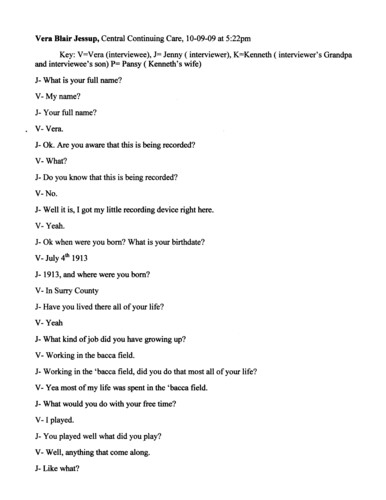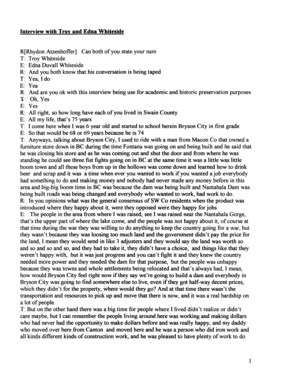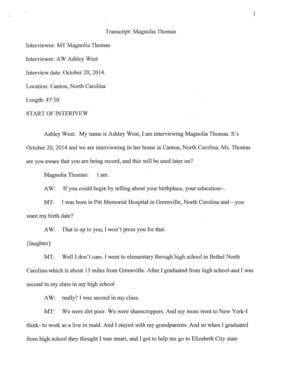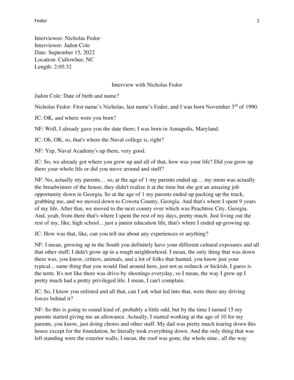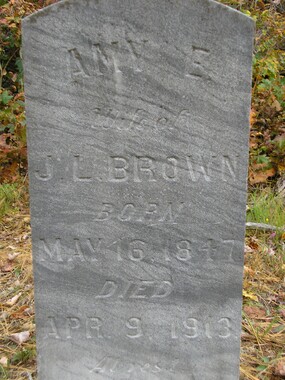Western Carolina University (21)
View all
- Canton Champion Fibre Company (2308)
- Cherokee Traditions (291)
- Civil War in Southern Appalachia (165)
- Craft Revival (1942)
- George Masa Collection (137)
- Great Smoky Mountains - A Park for America (3182)
- Highlights from Western Carolina University (422)
- Horace Kephart (998)
- Journeys Through Jackson (159)
- LGBTQIA+ Archive of Jackson County (90)
- Oral Histories of Western North Carolina (318)
- Picturing Appalachia (6617)
- Stories of Mountain Folk (413)
- Travel Western North Carolina (153)
- Western Carolina University Fine Art Museum Vitreograph Collection (129)
- Western Carolina University Herbarium (92)
- Western Carolina University: Making Memories (738)
- Western Carolina University Publications (2491)
- Western Carolina University Restricted Electronic Theses and Dissertations (146)
- Western North Carolina Regional Maps (71)
- World War II in Southern Appalachia (131)
University of North Carolina Asheville (6)
View all
- 1700s (1)
- 1830s (1)
- 1850s (1)
- 1860s (1)
- 1880s (1)
- 1890s (2)
- 1900s (2)
- 1920s (2)
- 1930s (5)
- 1940s (13)
- 1950s (20)
- 1960s (37)
- 1970s (32)
- 1980s (18)
- 1990s (11)
- 2000s (22)
- 2010s (25)
- 2020s (6)
- 1600s (0)
- 1800s (0)
- 1810s (0)
- 1820s (0)
- 1840s (0)
- 1870s (0)
- 1910s (0)
- Appalachian Region, Southern (19)
- Asheville (N.C.) (12)
- Avery County (N.C.) (1)
- Buncombe County (N.C.) (55)
- Cherokee County (N.C.) (17)
- Clay County (N.C.) (2)
- Graham County (N.C.) (15)
- Great Smoky Mountains National Park (N.C. and Tenn.) (1)
- Haywood County (N.C.) (42)
- Henderson County (N.C.) (5)
- Jackson County (N.C.) (134)
- Knox County (Tenn.) (1)
- Macon County (N.C.) (17)
- Madison County (N.C.) (4)
- McDowell County (N.C.) (1)
- Mitchell County (N.C.) (5)
- Polk County (N.C.) (3)
- Qualla Boundary (6)
- Rutherford County (N.C.) (1)
- Swain County (N.C.) (30)
- Watauga County (N.C.) (2)
- Waynesville (N.C.) (1)
- Yancey County (N.C.) (3)
- Blount County (Tenn.) (0)
- Knoxville (Tenn.) (0)
- Lake Santeetlah (N.C.) (0)
- Transylvania County (N.C.) (0)
- Digital Moving Image Formats (2)
- Interviews (318)
- Manuscripts (documents) (3)
- Personal Narratives (8)
- Photographs (4)
- Portraits (2)
- Sound Recordings (310)
- Transcripts (220)
- Aerial Photographs (0)
- Aerial Views (0)
- Albums (books) (0)
- Articles (0)
- Artifacts (object Genre) (0)
- Bibliographies (0)
- Biography (general Genre) (0)
- Cards (information Artifacts) (0)
- Clippings (information Artifacts) (0)
- Copybooks (instructional Materials) (0)
- Crafts (art Genres) (0)
- Depictions (visual Works) (0)
- Design Drawings (0)
- Drawings (visual Works) (0)
- Envelopes (0)
- Exhibitions (events) (0)
- Facsimiles (reproductions) (0)
- Fiction (general Genre) (0)
- Financial Records (0)
- Fliers (printed Matter) (0)
- Glass Plate Negatives (0)
- Guidebooks (0)
- Internegatives (0)
- Land Surveys (0)
- Letters (correspondence) (0)
- Maps (documents) (0)
- Memorandums (0)
- Minutes (administrative Records) (0)
- Negatives (photographs) (0)
- Newsletters (0)
- Newspapers (0)
- Notebooks (0)
- Occupation Currency (0)
- Paintings (visual Works) (0)
- Pen And Ink Drawings (0)
- Periodicals (0)
- Plans (maps) (0)
- Poetry (0)
- Postcards (0)
- Programs (documents) (0)
- Publications (documents) (0)
- Questionnaires (0)
- Relief Prints (0)
- Sayings (literary Genre) (0)
- Scrapbooks (0)
- Sheet Music (0)
- Slides (photographs) (0)
- Songs (musical Compositions) (0)
- Specimens (0)
- Speeches (documents) (0)
- Text Messages (0)
- Tintypes (photographs) (0)
- WCU Mountain Heritage Center Oral Histories (25)
- WCU Oral History Collection - Mountain People, Mountain Lives (71)
- Western North Carolina Tomorrow Black Oral History Project (69)
- A.L. Ensley Collection (0)
- Appalachian Industrial School Records (0)
- Appalachian National Park Association Records (0)
- Axley-Meroney Collection (0)
- Bayard Wootten Photograph Collection (0)
- Bethel Rural Community Organization Collection (0)
- Blumer Collection (0)
- C.W. Slagle Collection (0)
- Canton Area Historical Museum (0)
- Carlos C. Campbell Collection (0)
- Cataloochee History Project (0)
- Cherokee Studies Collection (0)
- Daisy Dame Photograph Album (0)
- Daniel Boone VI Collection (0)
- Doris Ulmann Photograph Collection (0)
- Elizabeth H. Lasley Collection (0)
- Elizabeth Woolworth Szold Fleharty Collection (0)
- Frank Fry Collection (0)
- George Masa Collection (0)
- Gideon Laney Collection (0)
- Hazel Scarborough Collection (0)
- Hiram C. Wilburn Papers (0)
- Historic Photographs Collection (0)
- Horace Kephart Collection (0)
- Humbard Collection (0)
- Hunter and Weaver Families Collection (0)
- I. D. Blumenthal Collection (0)
- Isadora Williams Collection (0)
- Jesse Bryson Stalcup Collection (0)
- Jim Thompson Collection (0)
- John B. Battle Collection (0)
- John C. Campbell Folk School Records (0)
- John Parris Collection (0)
- Judaculla Rock project (0)
- Kelly Bennett Collection (0)
- Love Family Papers (0)
- Major Wiley Parris Civil War Letters (0)
- Map Collection (0)
- McFee-Misemer Civil War Letters (0)
- Mountain Heritage Center Collection (0)
- Norburn - Robertson - Thomson Families Collection (0)
- Pauline Hood Collection (0)
- Pre-Guild Collection (0)
- Qualla Arts and Crafts Mutual Collection (0)
- R.A. Romanes Collection (0)
- Rosser H. Taylor Collection (0)
- Samuel Robert Owens Collection (0)
- Sara Madison Collection (0)
- Sherrill Studio Photo Collection (0)
- Smoky Mountains Hiking Club Collection (0)
- Stories of Mountain Folk - Radio Programs (0)
- The Reporter, Western Carolina University (0)
- Venoy and Elizabeth Reed Collection (0)
- WCU Gender and Sexuality Oral History Project (0)
- WCU Students Newspapers Collection (0)
- William Williams Stringfield Collection (0)
- Zebulon Weaver Collection (0)
- African Americans (97)
- Artisans (5)
- Cherokee pottery (1)
- Cherokee women (1)
- College student newspapers and periodicals (4)
- Education (3)
- Floods (15)
- Folk music (3)
- Great Smoky Mountains National Park (N.C. and Tenn.) (1)
- Hunting (1)
- Logging (5)
- Mines and mineral resources (2)
- Rural electrification -- North Carolina, Western (2)
- School integration -- Southern States (2)
- Segregation -- North Carolina, Western (5)
- Slavery (5)
- Sports (2)
- Storytelling (3)
- World War, 1939-1945 (3)
- Appalachian Trail (0)
- Cherokee art (0)
- Cherokee artists -- North Carolina (0)
- Cherokee language (0)
- Church buildings (0)
- Civilian Conservation Corps (U.S.) (0)
- Dams (0)
- Dance (0)
- Forced removal, 1813-1903 (0)
- Forest conservation (0)
- Forests and forestry (0)
- Gender nonconformity (0)
- Landscape photography (0)
- Maps (0)
- North Carolina -- Maps (0)
- Paper industry (0)
- Postcards (0)
- Pottery (0)
- Railroad trains (0)
- Waterfalls -- Great Smoky Mountains (N.C. and Tenn.) (0)
- Weaving -- Appalachian Region, Southern (0)
- Wood-carving -- Appalachian Region, Southern (0)
Interview with Vera Blaire Jessup
Item
Item’s are ‘child’ level descriptions to ‘parent’ objects, (e.g. one page of a whole book).
-
Vera Blair Jessup remembers the hardships of food shortages and rationing during World War II, her community’s negative reactions to the war, and her brother’s struggles after coming back shell shocked from the war. Also present during the interview were Kenneth and Pansy Jessup, Vera's son and daughter-in-law.
-
-
Vera Blair Jessup, Central Continuing Care, 10-09-09 at 5:22pm Key: V=Vera (interviewee), J= Jenny ( interviewer),K=Kenneth (interviewer's Grandpa and interviewee's son) P= Pansy (Kenneth's wife) J- What is your full name? V-Myname? J- Your full name? . V- Vera. J- Ok. Are you aware that this is being recorded? V- What? J- Do you know that this is being recorded? V-No. J- Well it is, I got my little recording device right here. V- Yeah. J- Ok when were you born? What is your birthdate? V- July 4th 1913 J- 1913, and where were you born? V- In Surry County J- Have you lived there all of your life? V- Yeah J- What kind of job did you have growing up? V- Working in the bacca field. J- Working in the 'bacca field, did you do that most all of your life? V- Yea most of my life was spent in the 'bacca field. J- What would you do with your free time? V-I played. J- You played well what did you _play? V- Well, anything that come along. J- Like what? V- Drop a handkerchief J- What kinda of game is that? V-I loved to play blind man's bluff. J- Blind man's bluff, How does that go? V-I loved to play that but mamma did want us to. She was afraid we'd get hurt. J- What do you do in that game, what happens? V- You blind fold somebody and then you try to find them. J- Ohman! That's dangerous. V- Ain't that a sight? J- Yeah! How was your daily life like during WWII? V- What? J- How was your daily life like during 1930-1945? V- Oh I don't know just a day I guess. J- Just a day, and what kind of impact do you think that war had on your community? V- Well I think there was a lot of wars I don't think ought to have been. J- How do you think that your community reacted to the war, did they do anything to help out? V- They didn't react too good. Naw, them soldiers were being killed. J- Well that would upset about any body V- Yeah. J- Did a lot of those boys did they volunteer or were they drafted? V- Some of them was drafted and some of them lost their lives. J- How did the economy of that time period affect you? V- What? J- How was the economy did it affect you? V- Everything was shortage. J- Shortage of everything. V- Shoes sugar they was in shortage. And shoes was you couldn't get a pair of overalls for the children. J- What did y'all do with the shortages, how did y'all make ends meet? V- What? J- How did you make ends meet? V- We did the best we could. K- Ya had to have a stamp, had to have a stamp for sugar pants clothes everything. V- Everything was rationed. J- Everything was rationed. Did y'all have like little book things? V- What? J- Did y'all have like little ration books so it'd tell ya how much y'all could get. V- I don't know K- Didn't ya have to have stamps? V- What? K- Didn't ya have to have a stamps to get stuff? V- Yea had to have stamps. J- Did you or your family buy war bonds? V- No didn't have no money to buy them. J- Would y'all keep up a separate garden during that time? V- We had a garden. J- You had a garden to get your vegetables out of and it would be big enough for the whole family. V- We kept a garden. J- Did y'all keep any animals? V-A cow. J-Acow. V- And chickens and a pig. J- Now who tended to the animals? V-Mamma. J-Mammaok. V- Mostly we would get up the eggs and things like that. J- Would you be able to take the eggs and sell them anywhere else.? V- What? J- Would you be able to take the eggs and trade them out for anything else? V- Yeah, take them to the store. J- And they were happy exchanging eggs for it? V- Yea and get a few things we had to have. That was it. It wasn't like it is now where you go to the store and fill up a grocery cart. J- Yea it's a lot different now. Did the church do anything? V- I don't know I don't remember. J- Yeah its been a while V- I was a child. J- Yeah, who all do you know that served in the war? V- What J- Who do you know that served in the war? V- Say it again. J- Served. Who was part of the war, who was in the military in that time? V- I don't know. K- Ya had a brother, ya had a brother in the army. V- Yea I did, my brother. The army ruined his life. He wasn't ever the same. J- Yea what do you think caused that? What caused that? What changed him about it? P- Was he wounded? V- What P- Did he get shot? V- Oh my brother? P-Yea ,Calvin. V- He was shell shocked, why do you have to have that? J- This information? V- Yea. J- I am doing a project at school I'm writing a paper on it. V- Yea. J- So was your brother drafted of did he volunteer? V- Naw, not a whole lot of people tried to get in. J- How would you say the war impacted your life, was there a big difference before and after the war? V- Better? ... What you mean? Was it better or worse? J- Yea was it better or worse before or after the war? V- It got better. J- Did it seem like life might have been easier during the war or after the war? V- What? J- Was life easier during the war or after the war? V-I don't know, it's always been the same. J- It was just day to day wasn't it? V- Yea. J- Is there anything else you would like to me from that time period? Something like an event you might can remember? V- Sugar was all colors. J- Sugar was all colors. What do you mean? V- I mean it was just all colors it wasn't white sugar like you get today. It was all kinds of colors. And everything was rationed shoes was hard to get and overalls was hard to get. K- I didn't have a pair of shoes till I was six years old. V- Well they was on as long as they lasted. K- We was so poor, J- Ohman (sarcasm inflicted). So did y'all have any kind of stores or anything that y'all could, where would y'all go to get some of the stuffy' all needed? V-What? J- Where would y'all go to get some of the stuffy'all needed? V- There was old country grocery once and a while J- Well how often did you get to go? V- Whenever we could. J- How would y'all get there just walk? V- What? J- How did y'all get there? V- Walk. J- Was it a long way away? V- Yeah, one time we build a closer store it was just across the road, but a lot of times you had to walk or get there the best way you could. (Side conversation) J- After your brother came back from the war did he ever talk about what happened? V- He didn't want to talk about it. J- How did he act? V- They finally got him on some medication so he could live a normal life but uh he would take wild spells and just ramble, his mind was shell shocked. J- Well how, hum, how was your mamma and daddy with going and then coming back? V- What? J- How did your mamma and daddy react after he went to the war and came back? V- Well they was hurt. J- They were hurt and upset ... did they try and talk him into not going? P- Well he had to go. V- Well yea he didn't pay no attention to them after he took a notion to ramble. P- Oh she's talking about when he came back. K- Wild as a jackrabbit. P- Shush you don't know what you're talking about. K- I know all about it. He came up the hill one day and the sheriff was after him up to the house. V- Yea that's right. K- He did I remember seeing him. J- What was that about? V- And I cried and he was worried about me fraid something was the matter with me cause I cried. J- Well what happened? K- He was just wild. • P- He was nervous. V- He was wild and was wife had sent the sheriff after him 'cause his wife didn't know what to do. J- Was he married before he went off? V- Yeah had a child born and hardly was gone. J- Was Calvin older than you or younger than you? V- What? J- Was Calvin older than you or younger than you? V- Younger J- Younger, a lot younger? V- Me and ruby was the oldest.
Object
Object’s are ‘parent’ level descriptions to ‘children’ items, (e.g. a book with pages).
-
Vera Blair Jessup remembers the hardships of food shortages and rationing during World War II, her community’s negative reactions to the war, and her brother’s struggles after coming back shell shocked from the war. Also present during the interview were Kenneth and Pansy Jessup, Vera's son and daughter-in-law.
-
